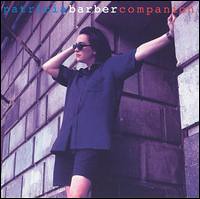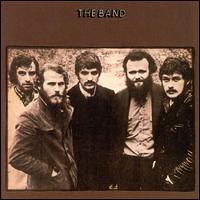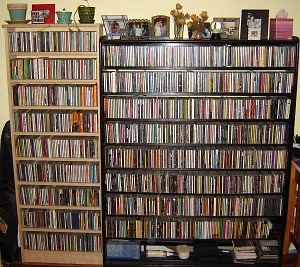Golden Keys, Hidden Doors
Artist: Patricia Barber
Albums: Modern Cool; Companion
Source: Promos
One question that I am often asked (usually by Eileen) is some variation on, “What the hell do you need all these damn CD’s for?” On its face, it’s an entirely reasonable question: with close to 2,000 albums at an average of about 30-40 minutes of music apiece, it would take about a month and a half of non-stop listening to go through all of them. And as anyone with more than one CD knows, sometimes you’re in the mood to hear certain things more than once in a 45-day period. Inevitably, there are discs that fall through the cracks.
So why keep them? Because, to some extent, I am utterly convinced that there’s gold in every single one of them thar hills. The problem is, I can’t always see the gold, or even reasonably identify the hill.
Take Patricia Barber. I’ve listened to these two CDs a few times each, and I am sure there’s something good, maybe even great going on here. The problem is…well, I’m not sure I hear it. Or at least I don’t hear it yet. I find her voice a bit odd. Her songwriting is definitely odd, as is her choice of covers (Sonny Bono’s “The Beat Goes On” and a slow-voodoo blues number? An ee cummings poem given a post-bop workout? And all of this is before her new disc, which is based on freakin’ Ovid!). The studio album, Modern Cool, might be a little too tight and studio-cooled; the live EP, Companion, may come off a little too loose and airy.
But…and but…
While my brain can’t compute it, something deeper down is starting to square the circle around Ms. Barber. I can’t hear it, but I know it.
So I inevitable hang on to discs like these, even as they close in on a decade of residence within The Beast. And I even get tempted to by more albums by the same artist, just on the off chance that the one I don’t yet have is the one that will unlock the ones I already own.
It’s madness, and it doesn’t even begin to properly answer Eileen’s question. But it also makes a kind of sense: the overall purpose of all this record collection (and I’m sure there is a purpose) is to keep turning the keys in secret locks, with the hope of gradually opening up doors behind which there are things of value. I don’t know what those things are, where the doors are, or which keys open them. But I know they’re there, and I’m skittish about trading away too many of the possibilities.
SISOSIG? All that being said, I don’t think I need both of these. Modern Cool only caught my eye because Dave Douglas plays trumpet on the session, and I’ve got plenty of better CDs that feature his playing. Companion, which is both shorter and a bit more accessible, gives me 7 tracks of whatever it is about Barber that I think I hear, and it’s probably enough to get me through the door…once I find it, that is.
Albums: Modern Cool; Companion
Source: Promos
One question that I am often asked (usually by Eileen) is some variation on, “What the hell do you need all these damn CD’s for?” On its face, it’s an entirely reasonable question: with close to 2,000 albums at an average of about 30-40 minutes of music apiece, it would take about a month and a half of non-stop listening to go through all of them. And as anyone with more than one CD knows, sometimes you’re in the mood to hear certain things more than once in a 45-day period. Inevitably, there are discs that fall through the cracks.
So why keep them? Because, to some extent, I am utterly convinced that there’s gold in every single one of them thar hills. The problem is, I can’t always see the gold, or even reasonably identify the hill.
Take Patricia Barber. I’ve listened to these two CDs a few times each, and I am sure there’s something good, maybe even great going on here. The problem is…well, I’m not sure I hear it. Or at least I don’t hear it yet. I find her voice a bit odd. Her songwriting is definitely odd, as is her choice of covers (Sonny Bono’s “The Beat Goes On” and a slow-voodoo blues number? An ee cummings poem given a post-bop workout? And all of this is before her new disc, which is based on freakin’ Ovid!). The studio album, Modern Cool, might be a little too tight and studio-cooled; the live EP, Companion, may come off a little too loose and airy.
But…and but…
While my brain can’t compute it, something deeper down is starting to square the circle around Ms. Barber. I can’t hear it, but I know it.
So I inevitable hang on to discs like these, even as they close in on a decade of residence within The Beast. And I even get tempted to by more albums by the same artist, just on the off chance that the one I don’t yet have is the one that will unlock the ones I already own.
It’s madness, and it doesn’t even begin to properly answer Eileen’s question. But it also makes a kind of sense: the overall purpose of all this record collection (and I’m sure there is a purpose) is to keep turning the keys in secret locks, with the hope of gradually opening up doors behind which there are things of value. I don’t know what those things are, where the doors are, or which keys open them. But I know they’re there, and I’m skittish about trading away too many of the possibilities.
SISOSIG? All that being said, I don’t think I need both of these. Modern Cool only caught my eye because Dave Douglas plays trumpet on the session, and I’ve got plenty of better CDs that feature his playing. Companion, which is both shorter and a bit more accessible, gives me 7 tracks of whatever it is about Barber that I think I hear, and it’s probably enough to get me through the door…once I find it, that is.



